Breaking into the boys’ club

















Springfield | “I feel like in some ways, after 10 years, I’m just figuring things out,” Nate Adams told the room full of Illinois Baptist leaders. For the first time in more than 30 years, the IBSA Board of Directors was able to celebrate a decade of service by the association’s executive director. The March 8 meeting began with the recognition of Adams’ 10 years of service to the Illinois Baptist State Association.
Three members of the 2006 search committee were present: Steve Diehl, Jerry Ford, and Roger Marshall. Diehl, pastor of Cornerstone Baptist Church of Champaign County, spoke briefly. “I’m very thankful to God to have opportunity to serve on the search committee,” he shared. “I’m very grateful to Nate that for ten years you made us look like we knew what we were doing.”


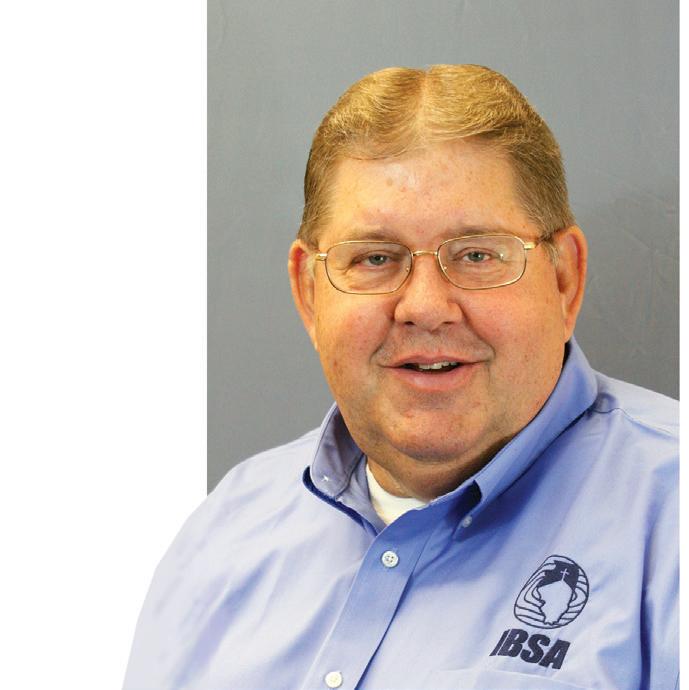
“Wages grew in 2015, and inflation and unemployment remained low. Yet the financial picture for many churches did not improve.”
– Scott McConnell, LifeWay ResearchBig picture: Economy gaining ground

The share of churches feeling negative impact from the economy has lessened since 2010:
It moves me that so many people in our churches fondly remember my father, Tom Adams, or at least his writing. Dad entered his eternal life with the Lord 10 years ago, just one month after I began my role here as IBSA’s executive director. Yet when I visit a church, members often tell me how much my dad or his writing meant to them.
In fact, it’s not uncommon for someone to reach into their Bible and pull out a yellowed clipping because it met a need in their lives. Dad wrote for the Illinois Baptist for 34 years. In columns such as “Problem Corner” and “Ask Tom Adams” he became sort of a counselor to many.
Church: Still grappling with budget questions
LifeWay Research asked Protestant pastors: At the end of 2015, church offerings were…
Editor - Eric Reed
Contributing Editor - Lisa Sergent
Graphic Designer - Kris Kell
Editorial Contributor - Meredith Flynn
Administrative Assistant - Andrea Hammond
For questions about subscriptions, articles, or upcoming events, contact the Illinois Baptist at (217) 391-3110 or IllinoisBaptist@IBSA.org
The Illinois Baptist is seeking news from IBSA churches. E-mail us at IllinoisBaptist@IBSA.org to tell us about special events and new ministry staff.


POSTMASTER: The Illinois Baptist is owned and published every three weeks by the Illinois Baptist State Association, 3085 Stevenson Drive, Springfield, Illinois 62703-4440. Subscriptions are free to Illinois Baptists. Subscribe online at IBSA.org
I hoped I would have my dad’s counsel for a few more years here. Instead I have relied on the years I had to observe him as father, pastor, and associational leader. With his memory in my heart, here are some of the lessons I learned from Tom Adams.
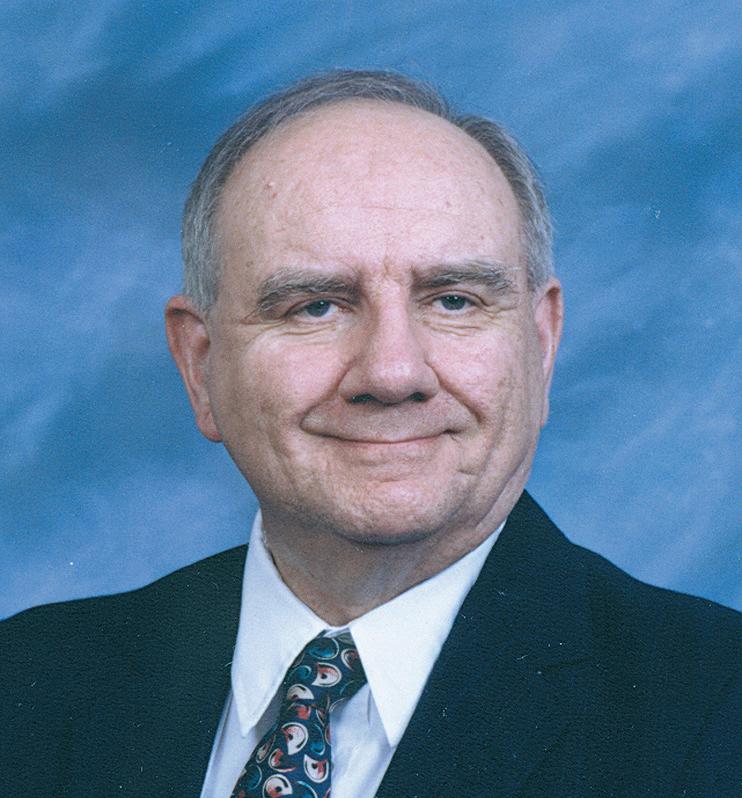
1. Writing broadens and lengthens influence.
Dad never pastored a large church, nor held a position of great stature. But because he wrote down carefully considered thoughts at least every couple of weeks for decades, he touched tens of thousands of people he wouldn’t have otherwise.
2. Few words can have more impact than many words.
Dad was a man of few words interpersonally, and the format of his columns gave him only a little room to express an opinion or idea in writing. But he demonstrated both in speech and writing that a few, carefully considered words can have great impact. Apparently they also fit better in your Bible.
3. Readers are better leaders. My dad would be the first to admit that his wisdom didn’t come from his own deep intellect or extensive formal education. But he was one of the more widely read men I have ever known. Just ask my mom, whose house is still filled with an incredible variety of books, even after giving many away.
4. Face your fears with faith. I didn’t know it until years later, but my dad was scared to death to move our family from Southern Illinois to the Chicago area. My mom tells me he became physically ill over the decision to follow God’s call there. What was very hard for him became very good for me, and in their own ways for the rest of our family. But his example helps me face my fears with faith, even today.
5. Invest fully where you are.
Dad was never a self-promoter or a ladder-climber. I know he dreamed of another position or two in his life, but he always chose to invest fully where he was called, until God through others beckoned him elsewhere. Me too.
I jotted down some other lessons: Do what you know is right, and trust God with the consequences. Marry well and let your spouse be herself. How you say something can be just as important as what you say. Some burdens are best borne privately. Leaders come in all personality types.
A few years ago my mom and I helped my dad organize some of his Illinois Baptist columns into a book. If you don’t have a copy of “Speaking Out,” I will be glad to send you one. He would be pleased for you to have it. And I will be pleased for his influence to touch your life as it has mine.
Nate Adams is executive director of the Illinois Baptist State Association. Respond at IllinoisBaptist@IBSA.org.
Dad’s been gone ten years, but I still benefit from his example every day.
Continued from page 1
Ford, who is Williamson Association director of missions, recalled asking Adams if he would stay in Illinois at least until his hair turned gray. Looking towards Adams and chuckling, Ford said, “Begin your second term and stay in this position until your hair falls out or you pull it out.”
Adams offered some reflection on IBSA’s victories during his decade of service, and a few challenges ahead, all in the form of a “top ten list.”
10. Goals and measurements. IBSA now has a consistent, annual pattern of evaluating churches’ needs (surveys), measuring churches’ progress (ACP), setting focused, organizational goals, and measuring effectiveness through multiple, strategic metrics. Our goals are based on facts and feedback, not programs or preferences. Everything from annual budgets to the Annual Meeting theme are driven by purpose and strategy.
9. Strong church participation. Over the past 10 years, IBSA churches baptized 49,584 people and planted 242 new churches. Mission trip participation is up 23% to more than 24,000. Nearly $90 million was given to missions, including more than $64 million through the Cooperative Program (CP). This growth in church participation is in spite of fewer total churches and members.
8. Financial frugality, stability, and health. Over the past 10 years, annual income over expense has averaged $395,000 or around 5% (in 2006 it was $36,608). IBSA’s Cooperative Agreement with the Baptist Foundation of Illinois (BFI) has helped it to grow and for the CP subsidy of BFI to be reduced from a peak of $153,000 to $35,000 in the 2016 IBSA budget.
While 2015 CP giving was $411,000 less than 2009 and NAMB revenue was $252,000 less, IBSA has avoided involuntary lay-offs, and modest compensation increases have been possible each year.
7. Updated and renewed facilities. In 2012, IBSA completed a $1.9-million renovation of its Springfield building and grounds, debt-free and on schedule. The building now hosts groups of up
to 250. In 2014, Lake Sallateeska expanded and renovated its dining hall and two other buildings.
6. Staff efficiency and strength. IBSA has trimmed, restructured, and right-sized its staff to adjust to available resources, increased personnel costs, and the evolving needs of churches. Part-time zone consultants are the most notable example. Today, the IBSA staff is not only more diverse, but far more field-based and closer to churches than it was 10 years ago.
5. Effective change management. IBSA has weathered significant economic and social change, from the secular culture, to the national SBC, to local associations and churches themselves. Many organizations and state conventions in particular have had traumatic adjustments to these changes. By acting early, budgeting conservatively, and an “elastic” restructuring, IBSA has for the most part been able to manage a gradual altitude adjustment with minimal negative consequences to IBSA churches. Changes at both the national SBC and local association level present IBSA with new opportunities and challenges for the future.
Those are the victories of the past 10 years. Now the challenges ahead:
4. IBSA churches’ relatively low net impact on lostness in Illinois. While 242 churches have been planted, the net IBSA congregation count has dropped from 1,032 to 957. IBSA churches baptized 4,400 in 2015, yet dropped 3,352 in Sunday School attendance.

3. Reversing health and growth trends among churches. Annual baptisms are down 18% from the 2009 level. Overall worship attendance is now basically the same in 2016 as 2006, though it rose as much as 9.3% (in 2008). Overall Sunday school attendance in 2016 was 17.4% lower than in 2006.
2. Rekindling the passion and renewing the power of cooperation. Some younger leaders and those without Baptist backgrounds do not always understand or buy in to the cooperative

Springfield | The IBSA Board approved a 0.25% increase in Cooperative Program giving to the national SBC in 2017. The quarter-point increase will mean an additional gift of approximately $15,000 for cooperative missions next year. The shift keeps the state association in line with the commitment toward increased support for missions, especially international missions, while adequately
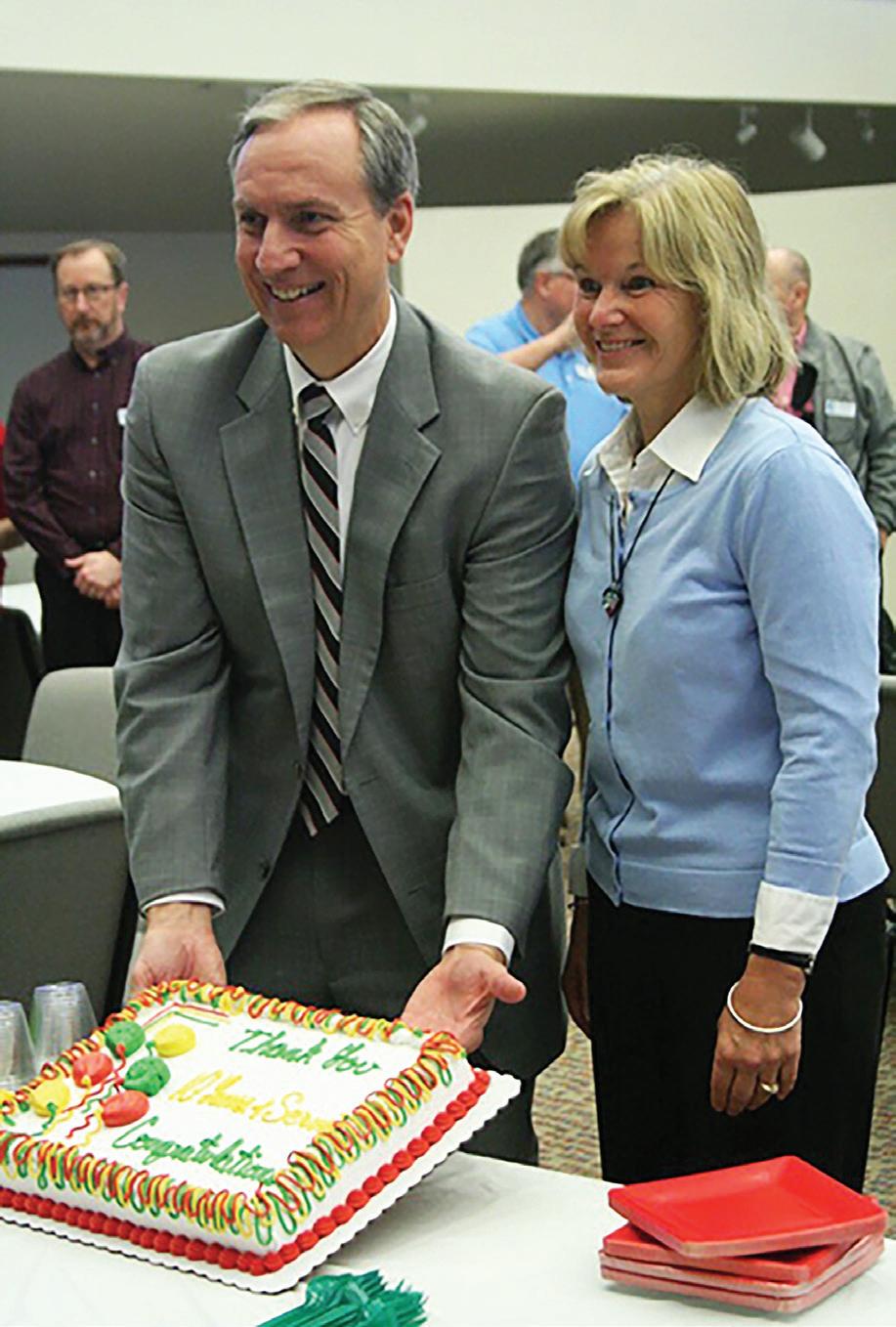
funding work in Illinois, still considered a “pioneer” state with 8 million or more lost people.
The adjustment means IBSA will forward 43.5% of all CP gifts to the national SBC Executive Committee. The remaining 56.5% will be used in Illinois to strengthen existing churches and to plant new ones. Among the 42 state conventions, IBSA forwards to the national SBC
missions model. After dropping to 6.8% in 2013 and 2014, the CP giving percentage rebounded to 7.1% in 2015. Nationally, the average is 5.5%. “Engagement” is key for IBSA’s future.
1. Raising the bar of leadership. Most of the challenges and problems with which IBSA churches struggle are rooted in leadership issues. As the 2015 Midwest Leadership Summit and 2016 Illinois Leadership Summit demonstrated, there is a hunger for leadership development among IBSA churches and leaders.
the eighth highest CP percentage.
The board approved the Resource Development Committee’s recommendation to accept the 2015 audit report from the Chicago area accounting firm of Capin Crouse. In its first year as IBSA’s auditor, the firm pronounced the audit “clean” and commended IBSA’s business practices with just a few tweaks.
> Executive Director Adams gave a report to the board, reporting “green lights” on most IBSA goals and offering a summary of his 10 years in the




position (see article above).
> Eight new board members were introduced: Alma Bonner, Jeanette Cloyd, Danny Donato, Randy Johnson, Vickie Munton, Jacqueline Scott, Heath Tibbetts, Kirk Rowe.
> Two new staff members are returning International Mission Board missionaries: Jeff Deasy, Church Cooperation Team associate executive director, who served in Brazil, Tanzania, and Kenya; and Mike Young, Streator Baptist Camp manager, who served in Czech Republic.
Women urged to expect more, share more
Springfield | “What would happen if a bunch of minister’s wives in Illinois started to expect more from God?” Rachel Lovingood asked a bunch of ministers’ wives in Illinois. The LifeWay author, speaker and minister’s wife urged her audience, “The world we live in is too big, bad, dark, and ugly for us to accept a hohum faith.”
About 80 spouses of pastors from across the state gathered for the two-day Ministers’ Wives’ Retreat which is held each spring.
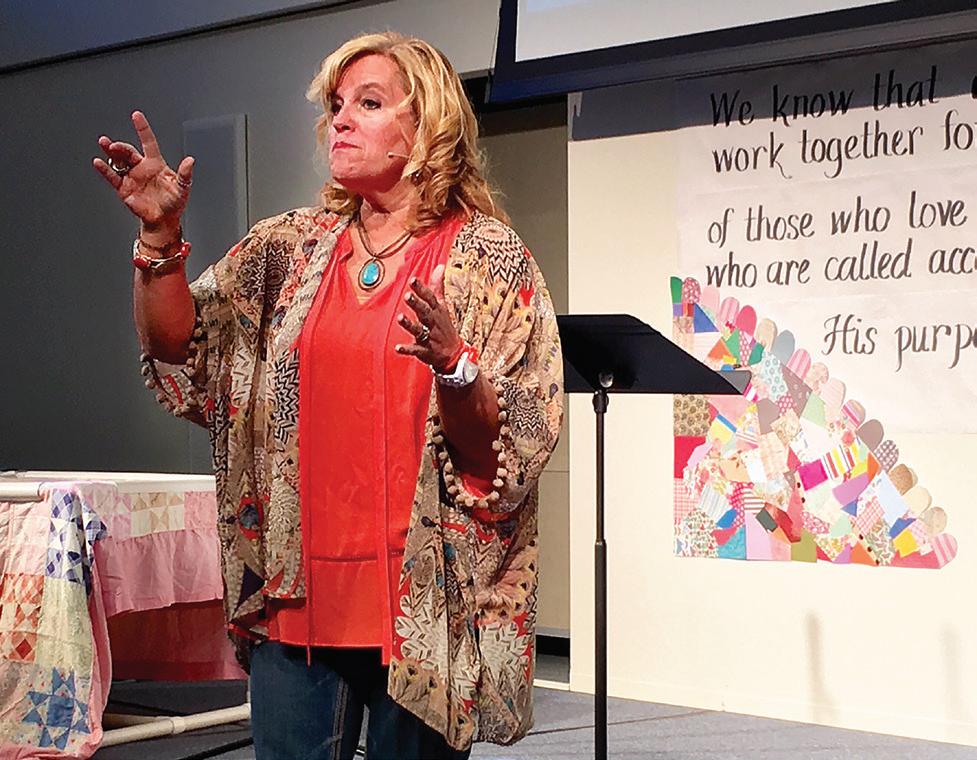
Lovingood, whose husband serves a church in Tennessee, told the story of her neighbor, Trish, who had grown up in the Bible Belt, yet never heard the gospel. “You have to understand, Rachel,” the young woman said to her, “every time the pastor reads a verse of Scripture, it’s the first time I’ve ever heard it.”
Including John 3:16.
Lovingood walked through the famous verse with Trish, explaining it word by word. Trish decided to read through the whole Bible, and she started a blog to encourage her own accountability. Ultimately 340 people followed Trish’s journey of discovery during the next year. But that meant Trish was at Lovingood’s kitchen table many, many mornings asking what her daily reading meant. “She kept me on my toes,” the speaker admitted.
One day Trish came over and smacked her Bible down on the counter. “She had steam coming out of her ears,” Lovingood said. Trish was mad and said she was finished reading the Bible. “Did you know Moses doesn’t get to go into the Promise Land?” she demanded, then stormed out of the house.
Later that day, Trish slipped back into the house and retrieved her Bible without saying a word. She resumed reading and blogging.
“Walking through Scripture with someone younger than you—not necessarily in age but in spiritual maturity—will invigorate you. It will give you fresh eyes,” Lovingood said.
She urged the women to be bolder in sharing their faith. “There are lost people across the street from us who have no idea what the gospel is. It will make the biggest difference in how we live our lives. We’ll live with more ‘umph.’”
Lovingood told the pastors’ wives, “It’s time for us to go on the offense. The best offense is to be passionately in love with Jesus and share him with everyone we meet.”
She concluded, “If we don’t get after it, who’s going to?”
Springfield | Illinois Disaster Relief teams are responding to massive flooding in Louisiana. Floodwaters have damaged more than 7,000 homes and affected 28 parishes (counties).
Normally states closest to Louisiana, such as Texas, Mississippi, and Arkansas, would be the first to respond. But the volunteers in those areas are currently responding to flooding in their own states. Illinois Disaster Relief has accepted the call to assist with the flood recovery efforts in the Leesburg, Louisiana area.

State Disaster Relief Coordinator Rex Alexander said, “Our teams will be serving for several weeks—possibly into May. Williamson Association, Capital City Association,
with the lord
and First Baptist Galatia, as well as individuals from all over the state, will be serving in Louisiana.”
How can Illinois Baptists help? “Long distance travel to Louisiana will increase the cost of this disaster response so prayer and donations from Illinois Baptists are especially needed at this time,” Alexander said. Visit www.IBSA.org/DR to donate, and learn about training opportunities. Updates are available at Facebook.com/Illinois Baptist.
To donate by mail, send a check payable to “IBSA Disaster Relief” to: Illinois Baptist State Association, P.O. Box 19247, Springfield, IL 62703.
Stephenville, Texas | Charles Leonard Chaney, a longtime Baptist leader in Illinois and on the national level, died March 2 at the age of 81.
Chaney served as director of church extension (church planting) for IBSA in the 1970s, and also planted a church in Palatine.
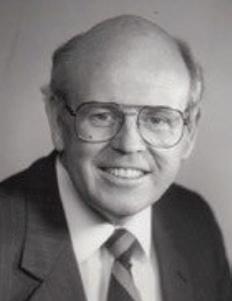
“I don’t think Southern Baptists understand what a treasure the Lord gave us in Charles,” said current IBSA Associate Executive Director for church planting Van Kicklighter. “He was, in my opinion, one of the great missionary thinkers of our generation.”
IBSA Executive Director Nate Adams echoed Kicklighter’s praise of Chaney. “He was well-loved by Illinois Baptists.”
Born in Texas in 1934, Chaney sensed a call to preach as a 16-year-old college freshman. He married Fannie Ingram in 1951 and the couple soon left Texas so Chaney could pursue his education at The Southern Baptist Theological Seminary in Louisville, Ky., and later at the University of Chicago.
In 1972, he began working as a church planting strategist, first in Illinois and then at the Home Mission Board, where he was vice president of extension from 1988-1997. In between those church planting roles, he served as a dean and then president of Southwest Baptist University in Bolivar, Mo.
In 1997, the Chaneys moved back to Texas, where Charles was Minister in Residence at Southwestern Baptist Theological Seminary in Ft. Worth. He wrote five books and spoke across the U.S. and internationally.
Chaney is survived by his wife of 64 years and a large family.
With nine months to go until the presidential election, a World magazine survey finds 8 in 10 evangelical leaders say they would vote for an outside third-party candidate as president over Democrat Hillary Clinton or Republican Donald Trump.


Meanwhile, Trump has been victorious in several southern states where voters identified heavily as evangelical, sparking a debate over the meaning of the word “evangelical.”
This tension has not been unnoticed by the media. A recent Yahoo Politics article declared, “Donald Trump’s candidacy has sparked a civil war inside American Christianity.”

In an essay for the New York Times, Russell Moore, head of the Southern Baptist Ethics and Religious Liberty Commission, asked, “Have evangelicals who support Trump lost their values?” In the article he decries Trump’s past behaviors and urges Christians to vote according to biblical moral values.
World’s March survey of 103 evangelical leaders and influencers showed more than 50% said they would, on principle, “vote for a third-party candidate who had no chance to win.” The survey also found 76% would vote for Sen. Ted Cruz as president if he secured the Republican nomination. In the eight prior surveys, their choice had been Sen. Marco Rubio who has since ended his campaign.

The debate continues over the disconnect between evangelical leaders and some people in the pews. D. C. Innes, King’s College professor and World magazine contributor, told the Deseret News evangelicals support Trump because they believe they’ve lost the culture wars. “Evangelicals, for example, became politically engaged to preserve their way of life and they don’t feel they’ve gotten their support’s worth from politicians. Abortion, gay marriage—they’ve lost on every front,” said Innes. “The support for Trump is an act of desperation: Protect us. We’re not
free to be Christians anymore, so you’ve got my vote.”
Turning to Trump, who is decidely not evangelical, is one option. At the other end of the spectrum is The Benedict Option. In 500 AD, after the fall of the Roman empire, Benedict moved to the city of Rome to continue his education. Disgusted by the decadence there, he left the city and withdrew from society. Benedict became a monk and started several monasteries, leading to the Catholic order that bears his name.

Rod Dreher, writing for the American Conservative, calls this “a communal withdrawal from the mainstream, for the sake of sheltering one’s faith and family from corrosive modernity and cultivating a more traditional way of life.”
A less severe option calls on Christians not to withdraw, but to focus on their churches as “counter-cultural communities of disciples who covenant to walk together for the sake of worship, catechesis, witness, and service.”
Nathan Finn of Union University says this movement (called the Paleo-Baptist Option because it draws from Baptist history) is necessary because “all Christians need to learn from each other, sharpen one another, and spur each other on to love and good deeds. We need each other as our respective traditions seek to follow Christ and bear witness to his kingship in a culture that is increasingly hostile to all forms of orthodox, full-throated, publicly engaged Christianity.”
Of course, considering either outright withdrawal from politics or shoring up “the Christian resistance against what the empire represents,” possibly by way of supporting a third-party run, is all conjecture at this point. With Super Tuesday behind us, and until both parties choose their nominees for the general election, believing evangelicals can only watch and pray for better options.
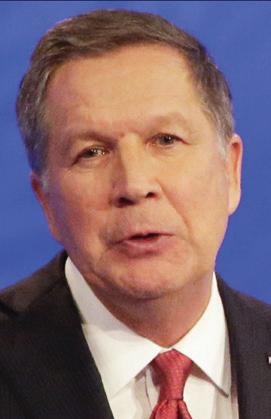
The pastor of Bellevue Baptist Church in metro Memphis is the second candidate to enter the race for president of the SBC. Steve Gaines, 58, succeeded Adrian Rogers after his death in 2005. Gaines (pictured with his wife, Donna) will be nominated by Georgia pastor Johnny Hunt “Steve struggled with this nomination as he has always believed this office should seek the man,” Hunt said. “With such a passionate desire for spiritual revival in our churches and nation, and knowing him to be a man of deep intense prayer, it brings joy to my heart to nominate Dr. Gaines.” So far, J.D. Greear of North Carolina is the only other candidate for SBC president.

The young woman who summarized all of Baptist history in a five-minute rap video in 2013 has returned with a campaign video for J. D. Greear. Ashley Unzicker tells in beat-box rhyme how presidential candidate Greear would lead the massive SBC, saying “it’s tricky.” Several leading SBC figures appear in the video, each repeating the line, “it’s tricky.”

They include the heads of three SBC entities: International Mission Board President David Platt, Ethics and Religious Liberty Commission President Russell Moore, and Southeastern Seminary President Danny Akin. Their sound bites appear to have been recorded by the entity heads on cell phones.

A disclaimer on the video says the opinions are those of the rapper, and not necessarily of the SBC, IMB, NAMB, Greear or his church.
The Louisiana Baptist Message reports overseas baptisms by the International Mission Board in 2015 dropped to 54,762 from the 190,957 reported for 2014, according to information submitted by IMB in response to a request by the Southern Baptist Convention Executive Committee. Likewise, the number of new churches fell from 13,824 to 3,842 over the same one-year period.
The baptism figure represents the lowest level reported since 1969. And it’s not a typo.
The loss of 135,195 baptisms year-over-year is explained by the loss of an international reporting partner. The figure, 54,762 baptisms, is “work related to IMB personnel only.”
IMB has not commented on the report.
CLINTON SANDERSDisliking their options, some evangelicals consider withdrawing from presidential politics this time around.PLATT TRUMP CRUZ KASICH
The SBC presidential election may be about a theological issue: How does salvation happen?
“I think that it is a very biblical concept to ask Jesus to come into your heart. Salvation comes as a response from repentance and faith. Nowhere in the Bible does it say that God regenerates you, and then you repent and believe. It’s always repentance and faith are prerequisites—not the products of regeneration—but prerequisites for regeneration.”
– Steve Gaines on ChristianPost.com, “Sinner’s prayer can lead to salvation, say Southern Baptist traditionalists,” June 2012

“The Bible teaches that no person can come to God unless Jesus first works in him. Our own hearts, naturally, are so dark and hard, that they hate God rather than love him. It takes a work of God’s grace in us before we will desire to know God. How that happens, what role our cooperation plays in that…those things we might disagree on. But we must agree that God’s work must come before we can choose him” (John 1:13; Philippians 2:13; John 6:44). – J.D. Greear on jdgreear.com, “Pastor J.D., Are you a Calvinist?” Oct. 2012
We're excited to announce the launch of four new programs at Trinity College, where we now offer over 70 areas of study. With so many options to choose from, you are sure to find a program that resonates with your academic pursuits. Find out more at tiu.edu/newprograms
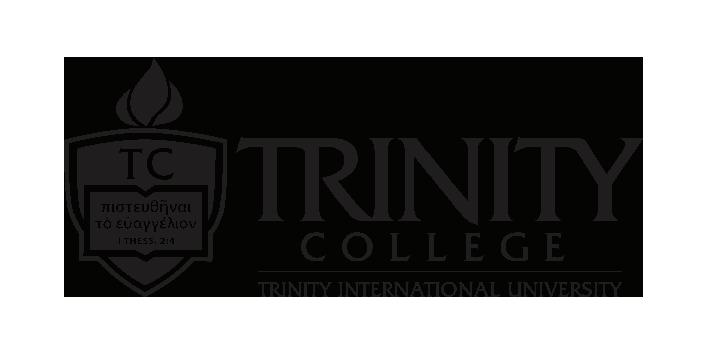
On its surface, the contest for Southern Baptist Convention president appears to be about passing the baton.
Steve Gaines is 58. He is the pastor of Bellevue Baptist Church in metro Memphis, an old-school megachurch whose pulpit Adrian Rogers commanded for more than three decades. From that post, Rogers helped engineer the conservative resurgence in the SBC. Gaines, likewise, is committed to conservative theology in the Rogers mould, a traditionalist on evangelism, the need for personal commitment to Christ in salvation, and the popular Baptist soteriology of the past century. Gaines is a product of Southwestern Seminary whose president, Paige Patterson, 73, is a leading example of altar-call, “sinner’s prayer” evangelism.
J.D. Greear, at 42, represents the new wave. His, too, is a megachurch, built in his 14 years as pastor. The Summit Church in Raleigh, N.C., is contemporary. Its attenders are younger than most SBC congregations, and their theology is more reformed. Greear speaks to the crowd identified in Collin Hansen’s book as “young, restless, and reformed.” He is a headliner at events for younger Southern Baptists. Greear holds two degrees, both from Southeastern Seminary.

Yes, this election may appear to be about the aging of boomers and the ascendance of
Gen-X and Millennials to top leadership in the convention. But more important, it’s about theology and the breadth of the SBC tent.
The denomination took a decided step to the right when Patterson, Rogers, and the leaders of the 1970’s and 80’s planted a firm stake for biblical inerrancy and social conservatism. But the convention has continued inching right as a generation of pastors inspired by Southern Seminary president Al Mohler and other reform theologians assumes leadership. The outcome of this election will say whether the Southern Baptists in the pews are moving with them.
One only need look back as far as 2012 to see when the issue of salvation and sovereignty made it to the convention. (See the 2012 quotes in the sidebar by Gaines and Greear as examples of divergent opinions on the topic.) At that time, some feared the argument might boil over.
By 2013, SBC Executive Committee CEO Frank Page had appointed a blue ribbon committee with representatives from both theological vantage points to speak to the simmering issue. At the last moment Page’s committee put a lid on it, but with the announcement of these candidates three years later, the debate is likely to be bubbling up again.
After three years of declining baptisms, SBC leaders are calling it what it is—an evangelism crisis. Plus: What evangelistic Illinois churches are doing to turn the tide.
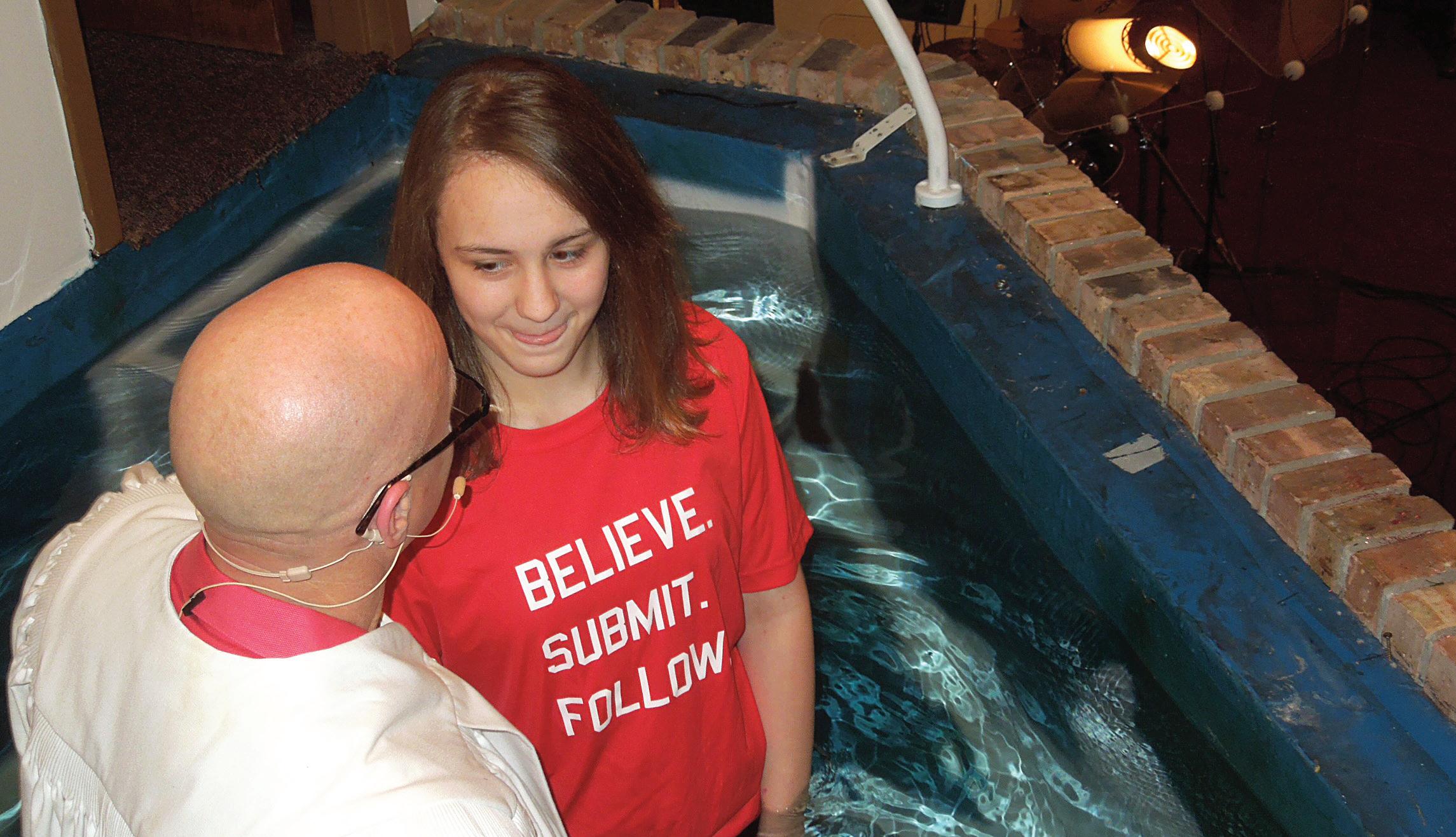 BY MEREDITH FLYNN
BY MEREDITH FLYNN
hat happened to evangelism in the Southern Baptist Convention?”
The question, posed by SBC President Ronnie Floyd, came after the Annual Church Profile reports completed by Southern Baptist churches showed a third consecutive year of declining baptisms. In fact, the total for 2014 (the most recent year for which national statistics are currently available) is the lowest number of baptisms since 1947. Southern Baptist churches baptized 305,301 people, a 1.63% decrease from the previous year. An in Illinois, the annual number of baptisms, which has hovered around 5,000,
dropped to 4,400 in 2015.
“Deplorable” is how Floyd described the reality that even though there are more SBC churches than ever, and an ever larger population to reach with the gospel, it’s simply not happening—at least, not according to the baptism numbers.
Recently, Floyd and other SBC leaders have been increasingly vocal about how the numbers reflect an even bigger problem: an evangelism crisis.
“Lostness in North America is having a bigger impact on Southern Baptists than Southern Baptists are having
Continued on page 8
Continued from page 7
on lostness,” New Orleans Theological Seminary President Chuck Kelley said at a recent chapel service.
The picture is bleak, but all is not lost, SBC leaders seem to agree. A turnaround is dependent on renewed appreciation for and dedication to evangelism in the Southern Baptist Convention and in individual churches. Church members need models, leaders who are soul winners themselves and can train people in the pews to share their faith.
“Let’s not be paralyzed,” Floyd wrote on his blog, urging Baptists to action. “Do something. Do more than you are doing now. Take a risk.
“Return to the importance of reaching and baptizing people.”
One reason some leaders cite for the SBC’s decline in baptisms, and overall in evangelism, is a culture that sidelines those things.
In an address to the SBC Executive Committee in February, Floyd spoke about a critical shift that has brought the denomination to this point:
“Years ago, something happened where pastors and churches that reached and baptized people effectively came under the microscope of other Baptists who oftentimes did not have a heart for evangelism themselves. A culture of skepticism about evangelism began to creep into our convention. Evangelism began to die.”
Even the way we talk about evangelism is different, said IBSA’s Pat Pajak. The weekly opportunity to go out “soul winning” has been replaced with more politically correct titles such as outreach, or more often the practice has been lost altogether. “In the process, born-again believers have lost the passion and emphasis on reaching into the pagan pool and bringing the lost to Christ,” said Pajak, who leads the Church Consulting Team.
Recent research supports this: A 2012 study by LifeWay Research found that while 80% of Protestant church-goers believe they have a personal responsibility to share their faith, 61% hadn’t told anyone how to become a Christian in the previous six months. Nearly half (48%) hadn’t invited an unchurched person to attend a church event or service in six months.
LifeWay Research President Ed Stetzer broke down the research this way: “…The typical churchgoer tells less than one person how to become a Christian in a given year. The number for more than half of respondents was zero. The second most frequent answer was one.”
To right the ship, SBC leaders have pointed first to the need for spiritual awakening—first in churches, then in the culture at large. But there are also solutions to be found at the denominational level and in local churches, starting with leaders.
Floyd recalled a time when only preachers who led strong evangelistic churches were invited to speak at the SBC Pastors’ Conference and annual meeting. Those leaders
were also the ones nominated for denominational offices. In his November blog post about the state of evangelism in the SBC, Floyd seemed to call for a return to those principles.
“Quite honestly, I am not impressed by how many books a pastor sells, how many Twitter followers he may have, at how many conferences he speaks, how great of a preacher he is, or how much his church does around the world if he pastors or is associated with a church that has a lame commitment to evangelizing and baptizing lost people and reaching his own community with the gospel of Christ.”
At the local level, too, leaders can help reverse the decline by creating an environment that is conducive to evangelism, said IBSA’s Mark Emerson
“The pastors who are effectively reaching people for Christ are creating an environment of evangelism in their churches,” said Emerson, whose Church Resources team equips churches in evangelism.
“They are making sure every ministry has an evangelistic purpose, they are designing their worship services to communicate the gospel and offer an opportunity for people to make a decision. These churches are training their members to effectively enter into gospel conversations.”
Scott Foshie is one pastor currently training his congregation to have those gospel conversations. Steeleville Baptist Church will start evangelism training in April, based on the “Can We Talk?” program created by Texas pastor (and FBC Pastors’ Conference President) John Meador.
“When it’s time to bridge a conversation from small talk to gospel talk, that’s an awkward transition for people to make,” said Foshie, who has pastored the church since early 2015. The six-week curriculum combines training with practical experience; teams of three people go out into the community, visiting neighbors and practicing gospel conversations.
Foshie’s personal stake in the training goes beyond the fact that it’s happening at his church. As a student of the F.A.I.T.H. evangelism training tool, he led his future wife, Audra, to faith in Christ.
“Personal evangelism training is very important to me because it changed my life. So, I want people to experience that. Personal evangelism training unleashes the army of the Lord, (it’s) what God has called us to do.”
But first, people have to face down a common obstacle: fear. The pastor likened sharing the gospel to someone handing you the keys to their sports car and telling you to take it around town.
“What we need to teach them is, hey, you step out in faith, you begin to learn to share, you simply share, and the Holy Spirit’s going to help you,” Foshie said.
“Once people learn to share the gospel, it changes their life completely.”

Tracy Smith uses a household analogy to describe the presence his church wants to have in their community. Imagine the light right above the stove in your kitchen suddenly goes out. That’s a really important light, maybe even more so once it’s no longer functioning.
“Our goal is to be that light right above the stove,” said the pastor of First Baptist Church in Mt. Zion. “That if something was to happen and that light went out, we want Mt. Zion to miss First Baptist Church.”
That goal is at the center of the church’s outreach strategy—a two-fold focus on inviting people to interact with the church on its grounds, while also being part of community events.
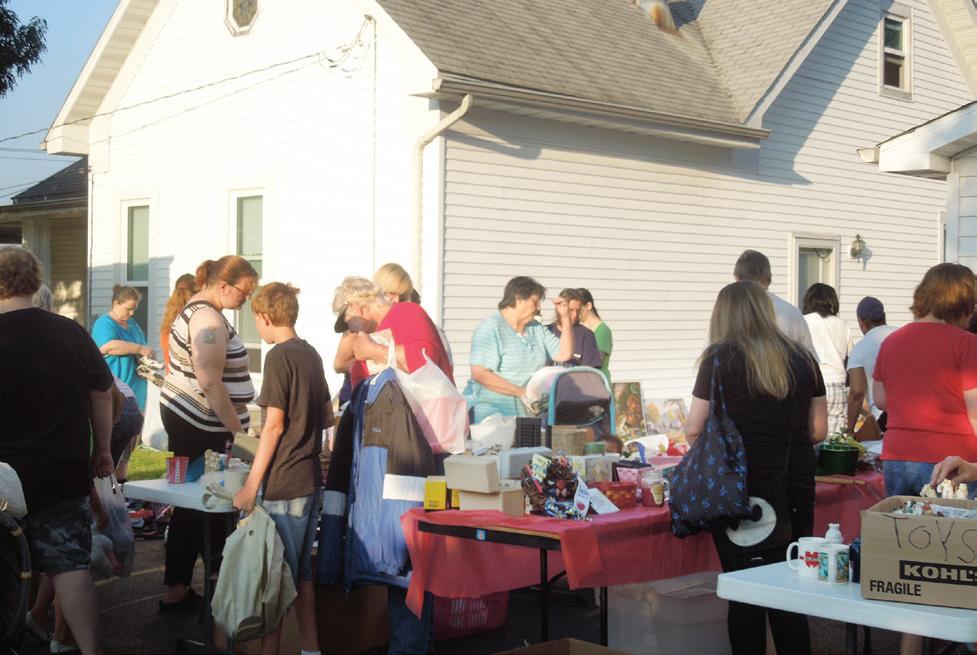
“Strategically speaking, God placed that church right smack dab in the middle of the village,” Smith said. To stay in the heart (and hearts) of its neighborhood, FBC Mt. Zion hosts outreach projects, including a highly anticipated every-other-year giveaway (a “rummage sale without the sale,” Smith said). The church has opened its doors to community meetings, does free car washes, and is the launch point for the Mt. Zion Christmas parade.
It’s “our way of being God’s light in this corner of the kingdom,” Smith said. When he came to the church five years ago, he found a congregation ready to reach their community with the gospel. “I wish I could say I came in here with all these great ideas and all this great motivation. That isn’t the case,” Smith said.
“We just put a little icing on the cake that was already being baked. And God ran with it.”
People who have been disconnected from church are reconnecting at FBC Mt. Zion, he said. While the church’s 2014 baptism total was an anomaly (the previous two years had each seen more than 10 baptisms), 2015 still marks the highest number of baptisms they’ve reported in more than 10 years. Already in 2016, seven people have been baptized at FBC Mt. Zion.
Still, there are people who need to know Christ. The numbers are great, the pastor said, “but there’s more for us to do.”
These churches reported big increases in baptisms from 2014 to 2015.
Victory Rock Fellowship Marengo • Fox Valley
From 1 to 9
Iglesia Bautista Getsemani
Sterling • Sinnissippi
From 0 to 17
New Lebanon Baptist Church
Kilbourne • Metro Peoria
*See story on page 10
From 0 to 7
First Baptist Church Mt. Zion • Central
*See story on page 8
From 2 to 19
Bayle City Baptist Church
Ramsey • Rehoboth
From 0 to 9
Dow Southern Baptist Church
Dow • Gateway
From 1 to 8
West 22nd Street Baptist Church
Granite City • Gateway
From 1 to 7
New Life Christian Fellowship
Hamel • Gateway
From 0 to 15
Glenridge First Baptist Church
Sandoval • Kaskaskia
From 0 to 13
Harvest Church of Southern Illinois
Anna • Clear Creek
From 0 to 6
Restoration Missionary Church Plainfield • Lake County
From 0 to 15
Sunfield Baptist Church DuQuoin • Nine Mile
From 0 to 6
Second Baptist Church Herrin • Williamson
From 2 to 14
Iglesia Gran Comision Waukegan • Lake County
From 1 to 8
Cornerstone Community Church
North Aurora • Fox Valley
From 1 to 37
Iglesia Misionera Bautista North Avenue Chicago • Chicago Metro
From 4 to 94
Resurrection House Baptist Church
Dolton • Chicago Metro
From 1 to 10
Families of Faith Church
Channahon • Fox Valley
From 0 to 16
First Baptist Church
Patoka • Kaskaskia
From 0 to 8
Macedonia Baptist Church Casey • Westfield
From 0 to 6
Jasper Baptist Church
Fairfield • Greater Wabash
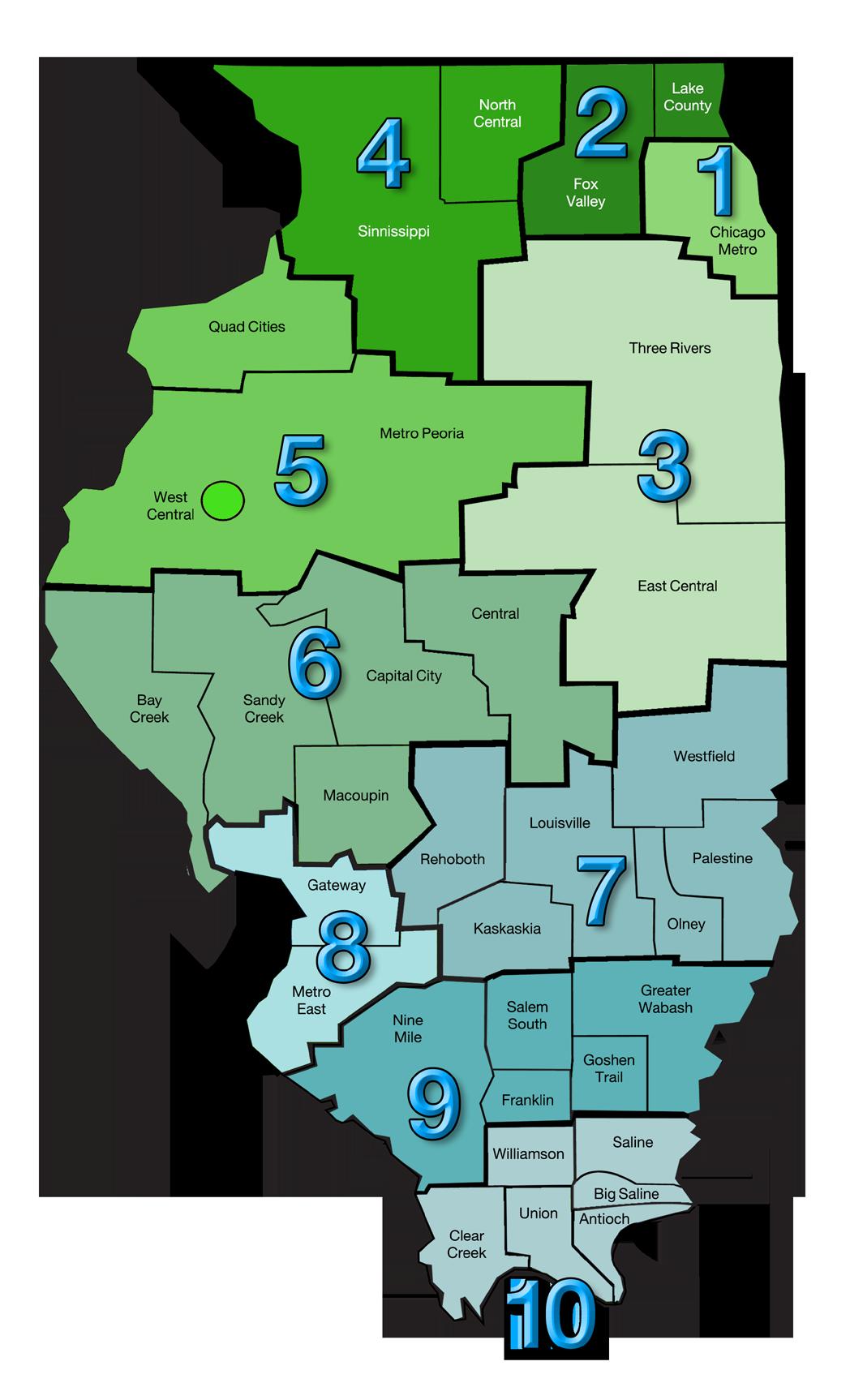
From 0 to 6
Dahlgren Baptist Church
Goshen Trail • *See story on page 10
From 2 to 17
First Baptist Church Bluford • Salem South
From 0 to 6
New Prospect Baptist Church Broughton • Goshen Trail
From 0 to 8
First Bonnie Missionary Baptist Church Bonnie • Salem South
From 2 to 14
Dahlgren Baptist Church (2 baptisms in 2014; 17 baptisms in 2015)
How did Dahlgren Baptist Church move from two baptisms in 2014 to 17 last year?
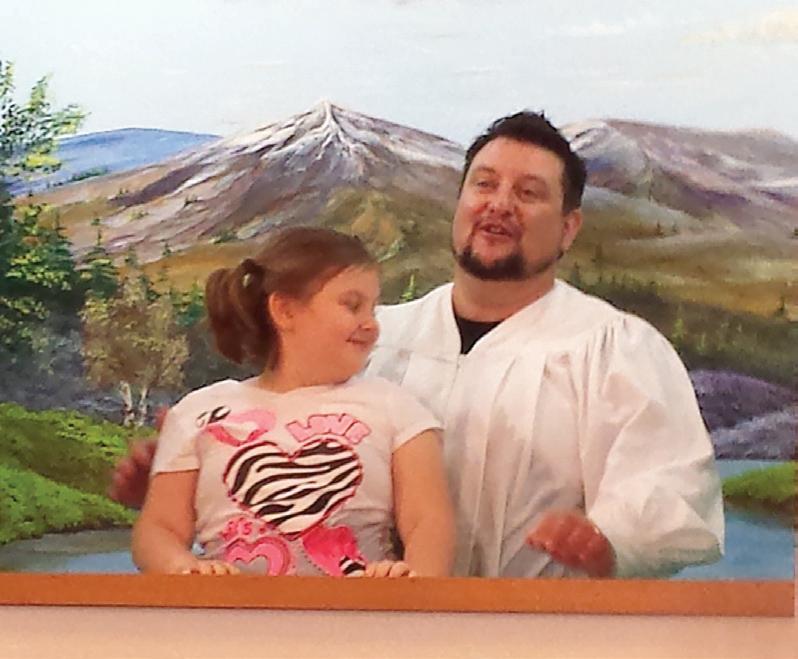
“I’ll give you the short answer: It’s all about Jesus,” said Pastor Brad Sloan.
His church is located in a small, predominantly Catholic village 15 miles southeast of Mt. Vernon. “There were a few people who were like, man, I don’t know if you’ll ever see much growth there,” said Sloan, who was installed as pastor in August of 2014.
The church hasn’t yet seen massive growth, “but what we have seen are souls (saved).”
Dahlgren’s Awana program for children reaches kids in the community whose parents aren’t yet connected to the church. Last summer, the church held its first Vacation Bible School in 10 years, with 33 kids in attendance.
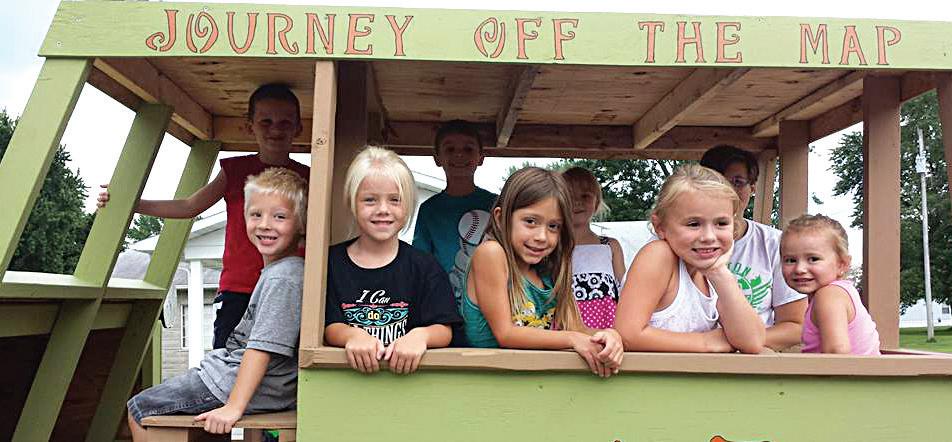
Through those outreach efforts and intentional Sunday school-based discipleship, Sloan is trying to inspire in his leaders a hunger for people to come to know Christ. In turn, the leaders challenge the students they’re discipling to examine what it means to have a relationship with Jesus.
“We’ve just had a lot of victory (in student ministry) when kids begin to be challenged: Hey, what do you believe about Christ?”
In 2015, the majority of Dahlgren’s baptisms were children (although the total
also included a family and a grandmother, Sloan said). The kids are now participating in children’s church and youth activities, and are learning to share their faith. The church also works to engage parents as they come to pick up their children from church. Sloan sees revival happening in his community, particularly in the schools, as students are being stirred to really live like Christ.
“There’s not one person in this little village that Jesus can’t impact,” he said, “and it’s up to us to introduce them to him.”
(0 baptisms in 2014; 7 baptisms in 2015)
Pastor John Cotton credits his philosophy of baptism to a Sunday school director at his previous church.
“He said we Baptists, over the last 30 to 40 years, we’ve run away from baptism,” said Cotton, who has pastored New Lebanon Baptist Church in Kilbourne since late 2014. The Sunday school director noted a troubling pattern where people came to church and received the gospel, but weren’t asked to follow up their decision with baptism. In many cases, they didn’t stick with the church. They received Christ and moved on.
That warning stuck with Cotton, who has made biblical teaching on baptism a major focus of a discipleship Sunday school class he started at New Lebanon. More than half of the church’s baptisms in 2015 came through that class, Cotton said, as people who had already trusted Christ realized they had never taken the next step of obedience through baptism.

Cotton understands well the power of baptism as an example to people who don’t yet know Christ. As a child in Michigan, he and his sister rode the bus to a local church, where they eventually accepted Christ and were baptized. His parents, not yet believers, witnessed their children’s baptisms and soon accepted Jesus and were also baptized.
During his first year at New Lebanon, Cotton has seen the church grow from 12 on Sunday morning to an average of 35. The faithful members who were there when he arrived have invited people to join them, and as visitors have come to the church, they’ve brought people too.
Cotton’s church is in a rural setting, without many other structures in the immediate vicinity, but they’ve seen spiritual fruit through intentional discipleship and word-of-mouth excitement.
Young volunteers tackle hands-on projects

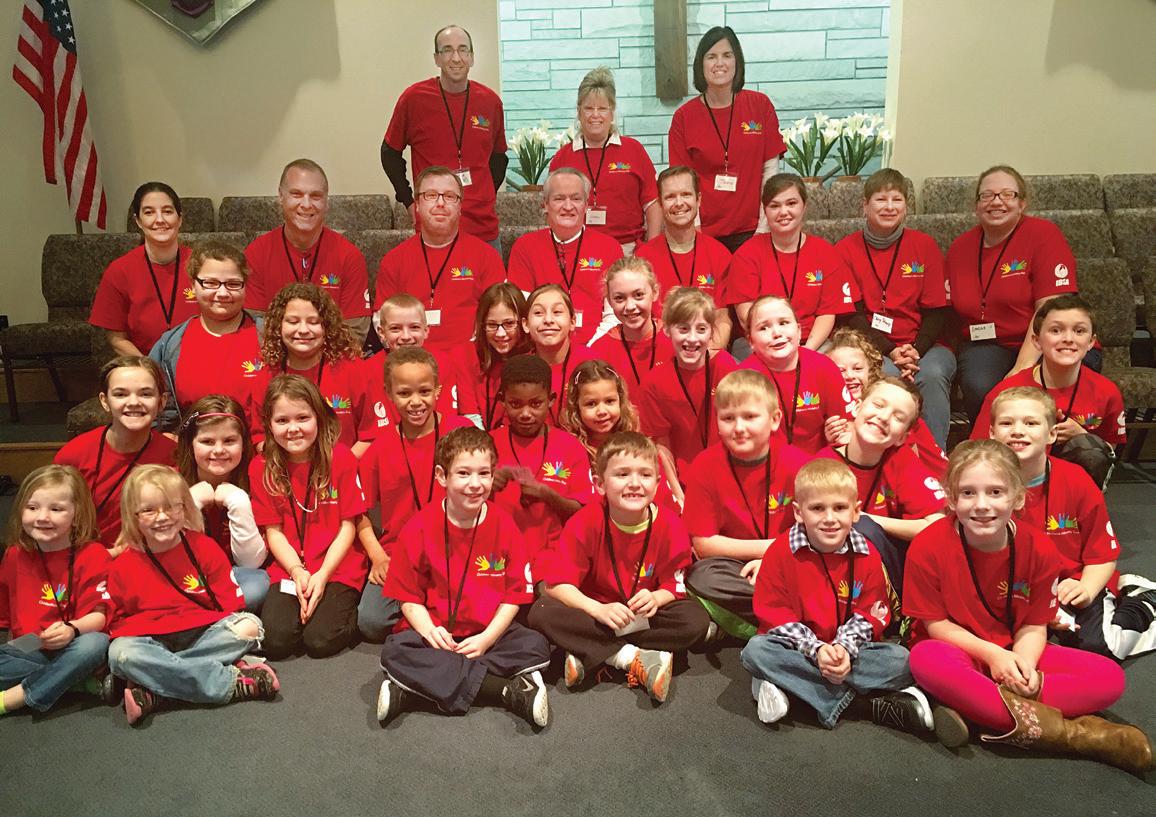
Illinois | March means missions for kids across the state. Children’s Ministry Day, Illinois’ annual one-day mission project for kids that grew out of a national Woman’s Missionary Union emphasis, expanded to 14 sites this year. More than 1,000 volunteers helped make this year’s mission day happen in Bridgeport, Carbondale, Carlinville, Carrier Mills, Chicago, Decatur, Hamel, Hillsboro, Mt. Vernon, Peoria, Quincy, Rockford, Springfield and Sterling.
The practical missions experience the day provides is the key to its value, said IBSA’s Carmen Halsey. “Children’s Ministry Day offers children’s leaders an opportunity to increase children’s awareness and provide missions education, while engaging in an actual service project.”
Go to www.IBSA.org/kids for more missions opportunities and ideas.

FIRST RESPONDERS – Kids got hands-on experience in missions and firefighting skills at projects in Carrier Mills (1) and Sterling (2) where they met and thanked local firefighters. In Chicago, kids at Resurrection House Baptist Church made cookies and brownies for police officers and firefighters (3, 4).

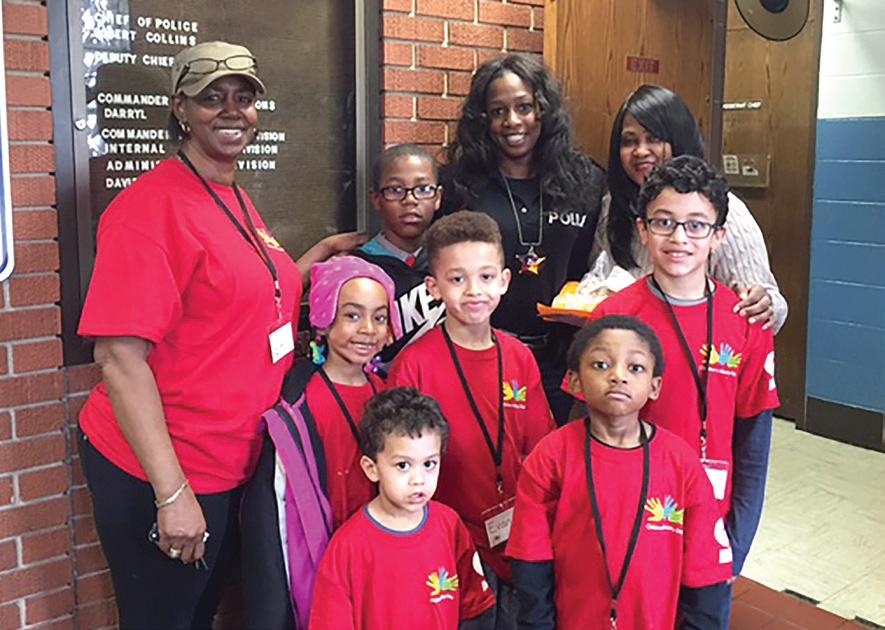
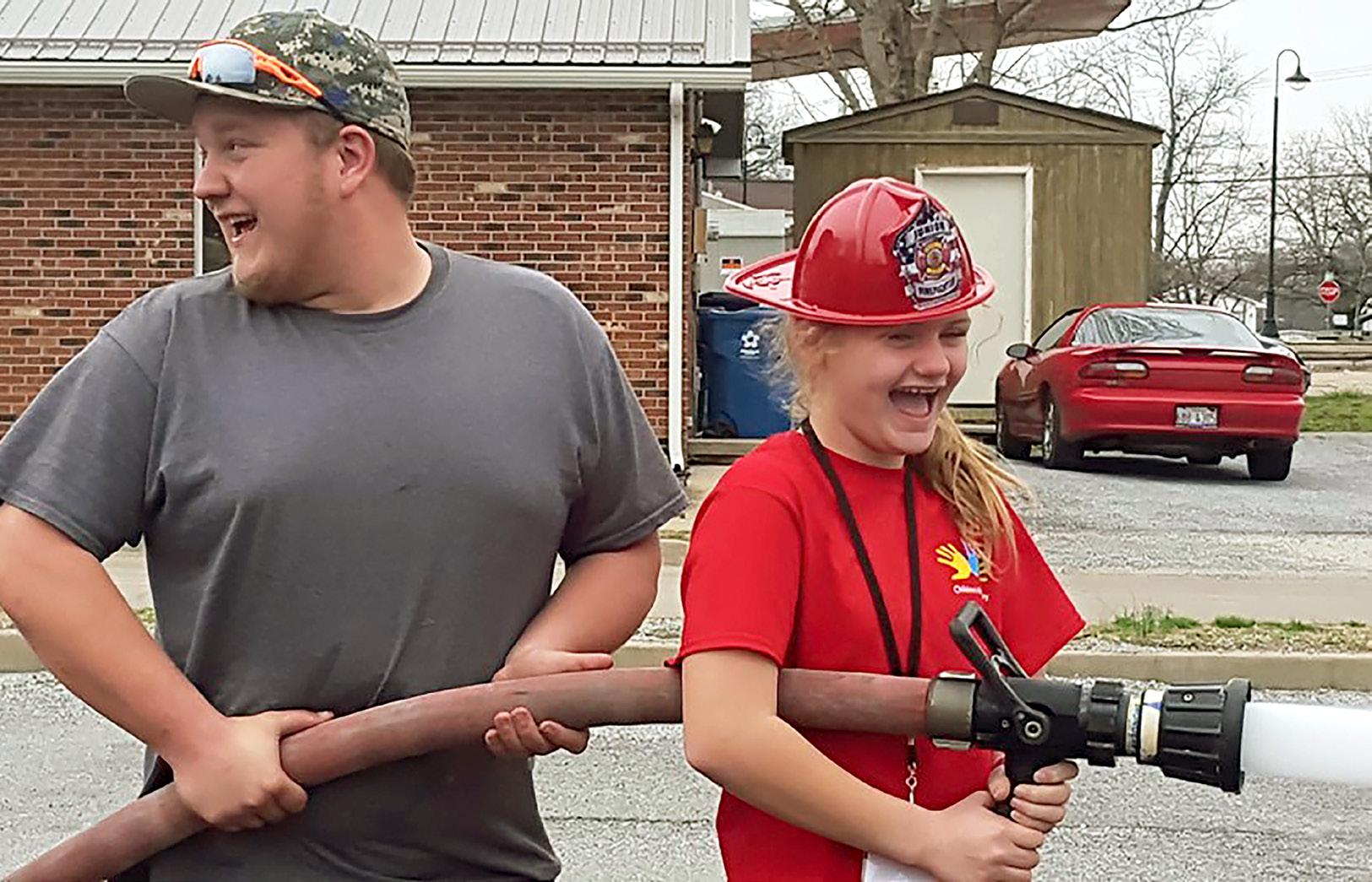

EASTER BASKETS – Volunteers at First Baptist Church, Machesney Park, made gifts for residents of an assisted living community in Rockford (5)
JOB WELL DONE – At each Children’s Ministry Day site, including Springfield (6), volunteers gathered in the morning for a group photo and came back in the afternoon for a celebration.
“Many of you have prayed for my family and me. We have felt sustained and uplifted by your prayers. Laura and I are incredibly grateful to you for those prayers. We consider your prayers to be a most precious gift.”
President George W. Bush, via video
“I want to make this statement, and I want to make it as plainly as I know how: We love homosexuals. God loves homosexuals….But he loves them too much to leave them homosexuals.”
SBC President James Merritt in response to protestors at the meeting
St. Louis | When the Southern Baptist Convention last met in the Gateway City, the country was still reeling from 9/11. Terrorism was a new, very real threat. Protestors rallied against the SBC’s positions on marriage and family. The denomination was highly visible and influential—enough so that then-President George W. Bush addressed the St. Louis gathering via video.
Fast forward 14 years, and the picture is different. The SBC’s voice—along with that of evangelicals as a whole—is hard to hear in this season’s presidential election. Protestors rarely come to the annual meeting anymore. Terrorism is still a very real, ever closer threat. And the U.S. is facing new issues, some which mirror the denomination’s own struggles.
Nine months after September 11, President Bush told Baptists meeting in St. Louis that many Americans had turned to prayer for wisdom following the terror attacks in New York, Washington, D.C., and Pennsylvania.
“That first evening we held hands as tight as we could and we sang worship songs and we tried to quote every Scripture we could remember. His presence came and it washed over us. Peace like a river just came and flooded our souls.”
Dayna Curry, describing her 105-day captivity in Afghanistan
“We should be concerned about the war on terror, but we should not forget the thousands who are being terrorized in the womb.”
Rick Reeder, sponsor of a resolution adopted by messengers urging partialbirth abortion ban
“Given the events of the day in which we live, it would be easy to hide in fear. But God has not given us a spirit of fear….The days are only going to get darker. Let your light so shine, so that others who are thirsty can meet the One who knows all about them.”
Radio host Janet Parshall, to SBC ministers’ wives
“And in these moments of prayer, we are reminded of important truths: that suffering is temporary, that hope is eternal, and that the ruthless will not inherit the earth,” Bush said in his video address.
The temporary nature of suffering is hard to swallow for Americans who are now much more aware of terrorists’ threats, and of national issues like racial division and sweeping cultural change. But God’s wisdom and his ability to transform hearts should still be the first pursuit for Southern Baptists, said current SBC President Ronnie Floyd.
“I want to see revival come to the church of Jesus Christ,” Floyd said after his election in 2014, “so that America would be awakened with a powerful God-consciousness where great numbers come to faith and trust in Jesus Christ as Savior.”
Toward that end, he organized an SBC-wide prayer gathering at the 2015 annual meeting in Columbus, and is planning a similar event in St. Louis. The theme of the Convention is “Awaken America, Reach the World,” Floyd blogged in February, and its key Scripture is Acts 4:31: “When they had prayed, the place where they assembled was shaken, and they were all filled with the Holy Spirit and began to speak God’s message with boldness.”
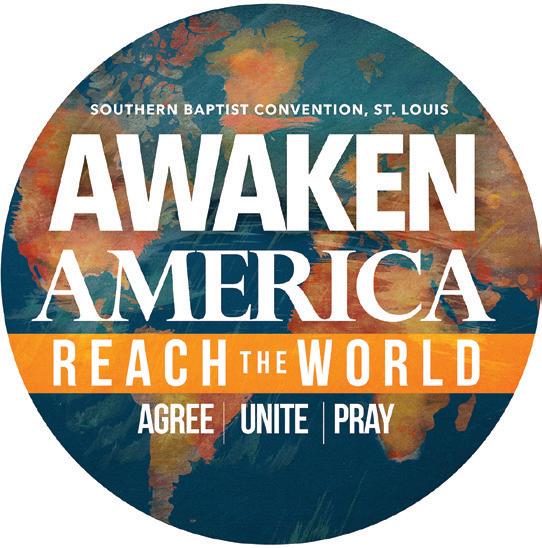

Baptist leaders also will address two of 2016’s pressing cultural issues—race and politics—in panel discussions in St. Louis. On Tuesday, June 14, the morning session will include “A National Conversation on Racial Unity in America,” with National Baptist Convention USA President Jerry Young and Marshall Blalock, pastor of First Baptist Church, Charleston, S.C.
On Wednesday afternoon, the discussion turns to this election year with a panel on how local pastors and churches intersect with American politics.
In 2002, Southern Baptists faced vocal opposition from outside the denomination. In St. Louis that year, 50 pro-homosexual demonstrators were arrested on the first day of the SBC—some for refusing to clear a sidewalk outside the convention center, and others for trespassing inside the center. The St. Louis meeting marked the third consecutive year that Soulforce, an organization dedicated to promoting gay rights, protested at the Convention.
Fourteen years later, gay marriage is legal in the U.S. and protests from outsiders are not likely at the 2016 convention. In their place is the cry from SBC leaders to renew our commitment to evangelism and to work together to advance God’s Kingdom on earth.
Floyd called for unity among Baptists in his last address to the SBC Executive Committee in February.
“Southern Baptists, we must come together,” he said. “We need to refuse to let the negative people in our churches and the negative
people in our convention set the agenda any longer. If we do not, we will become paralyzed and eventually forfeit our leadership with everyone.”
The call for unity isn’t just coming from Floyd. A group calling themselves “Voices for a New Baptist Future” posted on the SBC Voices blog Feb. 18 about the need for a new identity for the denomination going forward.
“Once, our unity came because we sang the same hymns from the same hymnal, used the same literature from the same Sunday school board, and heard similar sermons from pastors trained at the same seminaries,” reads the statement co-written by 11 authors. “That cultural identity is gone and must be replaced by something new.”
The Voices prescribe a new Baptist future that is confessional, cooperative and marked by freedom—and that has a large enough umbrella to include people from across the denomination.
“We need to accept that we will be young and old, traditionalist and culturally-relevant, rock-androll and piano-and-organ, we will wear coats and ties and jeans and t-shirts, and most importantly, we will be inerrantist Baptists with divergent views on the sovereignty of God in salvation, on eschatology, and on several other issues.”
Fourteen years from now (in 2030), whether Baptists are able accept to those differences and to unite in order that more might hear and respond to the gospel, could be the legacy of the 2016 Southern Baptist Convention.
– With reporting from Baptist Press

Jesus wept. Standing in the cemetery with Martha and Mary, he didn’t pat the grieving sisters on the shoulder. He didn’t say, “Don’t worry, girls, I’ve got this.” Certainly he could have. Jesus knew that in a few moments he would order the great stone rolled away from the tomb and call a dead man from its greedy maw. He knew that this sign would portend his own resurrection and back up his statement: “I am the resurrection and the life.”
But when the sisters each said, “Lord if you had been here our brother wouldn’t have died,” it must have been like a knife under his ribs. He had delayed rushing to their brother’s deathbed on purpose so that the Father would be glorified. But in that moment, before the tomb, he grieved for the sisters and for his friend Lazarus. Jesus did not stand apart from their grief. He entered into it.
On a recent Wednesday, I faced this phenomenon myself: stand apart from the sorrow, or enter into it. First I visited with the family of a man who had learned two weeks earlier that he had only months to live. But the end came more quickly than that. On Saturday he was changing the brakes on his wife’s car; on Sunday he was in a coma. He believed in God, his wife said, but unlike her, he never accepted Jesus as his savior. She had carried this sad truth throughout their marriage. She had lived her faith before the man and witnessed to him many times. Many people had, and now it was too late.
An hour later I met with another man who had learned two weeks earlier that he had only months to live. He had questions about faith. He wanted answers about why Jesus had to die for everyone. But more important, he wanted to be certain of his own salvation. He wept over sin—his own—and we prayed for his salvation and assurance.
On the way home I thought about the contrasts between these two meetings. And I wondered when was the last time I saw someone weep over his own sin. It’s been a while. I’ve been there many times when people cried
over the sins of others, and the impact of sin on the nation, but crying with the realization that their own sin is an offense to God? That their sin sent Jesus to the cross? It’s been a while. And stopped at a red light, I thought, How long since I cried over my own sins and my part in the sacrifice of Jesus?
We who handle holy things are like celebrity chefs who brag about their “asbestos fingers.” They’re so accustomed to grabbing hot pots without pot holders that their
hands have become desensitized to the heat.
We stand so close to the burning bush that it warms our toes but singes our eyebrows, and we hardly notice the difference. Like Moses we climb the mountain to meet with God, and we approach the burning peak with such aplomb that the smoke and lightning don’t scare us. We reach out to prop up the house of God with unholy hands, hardly thinking that others who did so were struck dead.
And across a thousand Sundays in the course of our ministries, we offer up symbolic body and blood with little thought to the lambs whose throats were slit, whose lifeblood drained into bowls to sprinkle the altar, and whose bodies were burned in sacrifice for sins. “Without the shedding of blood there is no forgiveness for sin” is easier said over Welch’s than Red Cross. Strange as it sounds, in the rush to the Good News, it’s possible to skim past the realities of death. It’s possible to celebrate the Cross without mourning the blood dripping from God’s Ultimate Sacrifice. If we are not careful, all this handling of holy things becomes routine. Even when we are careful.
Before rushing into the joys of Resurrection Sunday, all of us in “holy” professions should first stop at the reality of Crucifixion Friday. With sorrowful John and the weeping Marys at the foot of the Cross, let’s consider our own complicity, and enter in.

Eric Reed is editor of the Illinois Baptist newspaper.
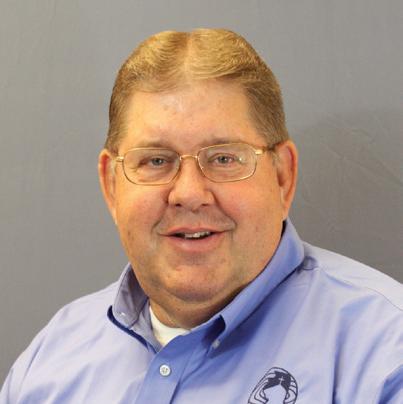
QThe men in my new church all fish and hunt. Some play golf. I don’t. How can I connect with them?
AIf you’re open to trying a new hobby, make it known that you don’t usually fish, hunt, golf, etc., but you’re interested in learning. Knowing the pastime is new to you, they’ll be patient, and you might actually discover that the fellowship and satisfaction of feeling like you’ve accomplished something might cause you to become a hunter, fisherman, or golfer.
Perhaps you have a hobby you could teach others: auto repair, motorcycling, bowling, woodworking, landscaping, jogging, softball, tennis, etc. Normally, it’s not too difficult to find another person or two that share the same interests you have. Don’t be afraid to speak up in Sunday school or at the next men’s ministry gathering and talk about your favorite sports team, musicians or hobbies. You could discover a new friend that you will connect with for years to come, and he doesn’t even hunt, fish or play golf.

QThis kid has allergies and his mom has appointed herself as the food police. Even at potlucks, she’s telling people what they can and cannot bring. I don’t think it’s the whole church’s job to guard against peanuts. Or am I nuts?
AObviously, this mom is concerned for her child and wants to protect them—I think we can all understand that. However, a better way might be for her to prepare a plate of safe foods and make sure that Junior or Sis sit with her—away from the food line and possible allergens. If she says that even being in the vicinity of certain foods causes an attack, the only other course of action would be for the child to sit in a Sunday school room or other part of the building to eat (which Mom has selected), and then join in on the activities that follow.
Pat Pajak leads IBSA’s Church Consulting Team. He has led churches of all sizes across Illinois. Send your questions for Pat to Illinois Baptist@IBSA.org.
“For accountability, I text my pastor every ten minutes with an update on my social media addiction.”
PAT PAJAKWe’re like celebrity chefs who brag about their “asbestos fingers” —desensitized by the heat.


Family: Laurie and I have been married 35 years. She has worked mostly part time as a registered nurse. She is my best friend and partner in ministry. We are both excited about serving in Chicago.
We have three wonderful children and they are all married: Chris, 32, lives in Melbourne, Australia, with his wife, Eleni, and is the Film Ministry Director for Campus Crusade for Christ Australia. Melissa, 28, is married to Carl Gorr and works as an opera singer and music teacher in Pittsburgh. Elizabeth, 25, married Isaac Matson in February. She teaches math online for Auburn University and is working on her Ph.D. in math. They live in El Paso, Texas, where Isaac is a 2nd Lieutenant in the U.S. Army.
Favorite thing about church as a kid: Coming to a work day at the church with the men was great. I also enjoyed hearing my dad preaching at the church plant he served in Hialeah, Fla.
Favorite thing about church now: Seeing people come to faith in Jesus and watching them get baptized. That is what the church is all about—new life.
Illinois highlights: I love living in the suburbs of Chicago. We live in Elgin, which has a small town feel, even though there are over 100,000 residents. I can walk down the hill from my house to the train station and be in downtown in an hour.
We also enjoy visiting churches all over Chicago. No two are the same, but they all worship the Lord Jesus. Our prayer is for God to strengthen our IBSA churches in Chicago and that many new churches are planted.
Favorite Scripture: Jeremiah 6:16
Find more information on ministry positions at IBSA.org/connect
Send NetworkiNg items to AndreaHammond@IBSA.org
Thatcher Chapman, 12, is an aspiring writer from Red Bud. Her dad, Ben, is a member of the IBSA Board of Directors and pastor of First Baptist Church, Red Bud. Thatcher accompanied him to the Board’s recent meeting in Springfield. She interviewed him about why it’s important to be part of a statewide strategy for missions and ministry.
Thatcher: Why is it important for local pastors and churches to be involved with IBSA?
Ben: IBSA works well, and I am continually impressed with the caliber of staff that God has given us. The more time I spend with them, and the more input I receive from them, the bigger cheerleader for IBSA I become. I really think our partnership helps us and I really hope our partnering helps them.
If a church decides to partner [with IBSA], then they should really partner. IBSA has an emphasis on leadership development. Pastors need training and input to serve well. Also, the idea of an isolated church without partnership or connection for accountability to other churches is foreign to the New Testament. Churches need each other.
T: Why is it important for FBC Red Red and other churches in Illinois to support mission work throughout the state?
B: First of all, it’s part of the Great Commission. The instructions of Jesus call for the church to be part of building the kingdom at various distances so that they see God’s hand in different
places and ways. Churches need to have a kingdom mentality that sees beyond what is happening in just one area to what God is doing in the big picture.
Every church has something it can contribute—skills, talents, specialties. IBSA can help match what we have to what they need.
T: How have you seen our Baptist cooperation make a difference?
B: IBSA has helped us buy Bibles for Cuba. Red Bud receives evangelism training from IBSA. We are also the recipients of cooperation through sister churches that share resources like literature and VBS materials with us.
We have done projects with church planting catalysts and served as a sponsor for a church plant in the Metro East. I have personally observed the great things that are happening in church planting in Chicago and Metro East St. Louis, and am thrilled to report back to our church the great things God is doing. Seeing these fruitful ministries gives stories that my people can identify with, that motivate them further into partnership.
Bob Evaul has joined the IBSA Church Consulting team as a part-time zone consultant in Zone 7, which includes Rehoboth, Kaskaskia, Louisville, Olney, Palestine and Westfield Associations. In his new role, Evaul will work with pastors and associational leaders to connect them with IBSA resources and training opportunities. He and his wife, Carol, served as missionaries to Bolivia for 18 years before moving to Illinois, where they helped plant churches and led SIHOP (Southern Illinois Hispanic Outreach Project), a partnership of three Illinois Baptist associations.
Russell Helton is the new pastor of College Heights Baptist Church in Eldorado. His new role actually marks a return to the church he led for six years prior to pastoring Calvary Baptist, also in Eldorado, for the last 40 years. The two churches officially merged on January 31 of this year. Helton has been married for 55 years to Delene; the couple has three children and eight grandchildren.
With the Lord C. Ray Fuller, 76, died March 7 in Edinburg, Texas.

After being licensed and ordained to ministry in 1969, Fuller pastored First Baptist, Farmer City, and First Baptist, DuQuoin in Illinois. He served 21 years as director of missions for Three Rivers Association until he retired on January 1, 2002. He served on the IBSA Board of Directors and the SBC Executive Committee.
Fuller is survived by his wife, Janice, of Alamo, Texas, and his two children and four grandchildren. For those who wish, memorial gifts may be sent to Baptist Children’s Home and Family Services, 949 County Road, 1300 N, Carmi, IL 62829.
First Baptist Church, Sesser, is seeking a bivocational pastor for youth and music. Salary is $20,000. Must agree with The Baptist Faith and Message (2000). Please send resumes to sesserfbc105@yahoo.com or call (618) 558-9927.
State Park Southern Baptist Church seeks a bivocational pastor to lead a dedicated congregation in a community with lots of opportunity for the gospel. Send resume to Norma Davis, 3220 Harvard, Collinsville, IL 62234, or e-mail Nancy1241@ ATT.net.
For Sale: Middle Creek Baptist Church closed late last year. The 2,880-sq. foot building at 15846 County Rd. 300 E. in Dahlgren is for sale, as well as its contents. Building includes baptistery, office, classrooms, kitchen, fellowship room and full basement. Call church clerk Jerry Barr at (618) 736-2340.
Free: New Song Ministries in Zion has 18, 12-foot church pews to donate to another ministry. Pews are light oak in color with light brown cushions attached to the seat and back. They are in good condition, but the ends could benefit from refinishing after years of use. Contact Pastor Dave Adams at (224) 588-7431 or daveadams@ newsongministries.org.
April 8-9, 22-23


What: Classes in chainsaw, food prep, mudout, childcare, chaplaincy, and more; cost is $30 for new trainees and $10 for renewals
Where: April 8-9 Western Oaks, Springfield; April 22-23: Streator Camp Register: www.IBSA.org/dr

April 9
Hispanic Leadership Training
Where: Armitage Baptist, Chicago
When: 8:30 a.m.-3 p.m.
Information: Ana Melendez, (630) 7123106 or Enid Delgado, (847) 265-9313
April 10
Cooperative Program
Sunday Resources: Communications@IBSA. org, (217) 391-3119
April 11-12
Resilient Call
Pastors’ Retreat
What: A free retreat for pastors featuring Phil Hunter, founding pastor of West County Community Church in Wildwood, Mo.
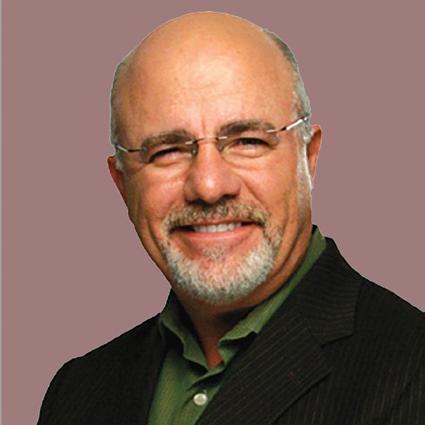
Where: Streator Baptist Camp Register: www.IBSA.org/church_health
April 29-30
What: Ministry and missions training for women; including a special track for girls in grades 10-12
Where: Tabernacle Baptist Church, Decatur
Cost: $25 per person, includes Saturday lunch Register: www.IBSA.org/women
May 9-10
IBSA Golf Scramble
What: For pastors, DOMs, church ministry leaders, and spouses
Where: Oak Terrace Golf Resort, Pana Register: Contact Oak Terrace at 1-800577-7598 or e-mail kohmes@oak terraceresort.com
5/18 Clutter and Passion


6/15 Your Thoughts are Showing
7/20 Default Settings
8/17 The Power of Play
Join us from 11:30 a.m.-12 p.m. every third Wednesday for our free leadership webinar series with Jane Bishop of Take the Next Step.
Information: BarbTroeger@IBSA.org www.IBSA.org/women

QShould I ever consider a 5/1 adjustable loan if I’m buying a house and plan to pay it off in five years?
ANo! The reason is you can never be assured that you’re going to pay it off in five years. If you go into it with that mindset, then you’re basically saying you can predict the future will be exactly how you want it to be. That’s pretty naïve. Your future will never be what you think it will be. It’s either going to be better or worse, but your future will never turn out exactly the way you plan for it to be.
If you can’t buy a home with cash, you need the stability of a 15-year, fixed rate mortgage in your life. We’re living in the lowest mortgage interest rate environment in about 50 years. I saw a 3.02% 15-year fixed rate mortgage just the other day.
For those of you who have not refinanced, if you’re staying in your home or you’re sitting on an adjustable rate, this is a great time to change that. Still, people are sitting around yawning like these kinds of rates are going to be around forever. It’s gone on for a while now, but don’t let that fool you into thinking those kinds of rates are normal. They’re not going to last forever.
QMy wife and I have our twentieth wedding anniversary coming up in a few months. We had always planned on taking a 10-day luxury trip to celebrate, but now that we’re trying to get out of debt it seems pretty unrealistic. Should we pause and celebrate like we originally planned, or would it be better to concentrate on paying off debt?
If it were me, I’d want to pause and celebrate in a smaller way. Then, in a year or two when you’ve reached your goal of being debt-free, you could have a big double celebration—for your anniversary and for gaining control of your finances.
Think about it. Why isn’t the twenty-first, twenty-second or twenty-third anniversary just as big as the twentieth? No reason really. It’s just an arbitrary milestone we as human beings decided on and created. But you can “undecide” stuff like that
draw near with a true heart in full assurance of faith.”
Location: Lincoln Park (Chicago’s North Side)
Focus: English-speaking, unchurched singles

Characteristics: This influential community has a high concentration of never-married adults (61% of the population), 85% of whom have a college or graduate degree. They have a high preference for traditional music and worship, but nearly half claim no faith involvement.

Prayer needs: Pray for God to call a church planter with credibility among well-educated people, and that God will prepare people in the community to receive and respond to the gospel.
pinterest.com/illinoisBaptist

If we expect to fix the evangelism problem in our churches, we need to give our people tools.
Consider this observation from Ed Stetzer:
Over the years, evangelism was generally defined by its tools. For example, the best known might be Evangelism Explosion and it’s famous question, “If you were to die today, do you know if you’d go to heaven or hell?”

Or, maybe the bridge illustration.
Or, the Roman Road.
Or, bracelets.
Yet, and there is the point, most people I know are more likely to roll their eyes at the tools, rather than use them. But, they don’t have an evangelistic alternative—all they have is an evangelistic angst. And angst does not help. The tools may seem outdated, unhelpful or cheesy to you, but the Roman Road is probably more effective than rolling your eyes….
Now, people roll their eyes at tools and don’t go to training conferences, and the end result is a lot of angst about evangelism but not a lot of, well, evangelism.

As D.L. Moody said, “Well, I like my way of doing it better than your way of not doing it!”
The IBSA Church Resources Team offers evangelism training including the new “3 Circles” diagram. Witness training is one of the “5 Building Blocks for Kingdom Growth” featured at the 2015 IBSA Annual Meeting. Read about all five commitments at IBSA.org/Five and in the Spring 2016 issue of Resource at Resource.IBSA.org.
(1 Peter 3:15).
“Why do you believe what you believe?” My friend asked me this at supper after the first day of the bar examination to become an attorney. He noted that I had a calm and peaceful demeanor considering the intense stress and pressure of the two-day exam.
I explained that my hope and identity is in Jesus Christ. Only through faith in the Lord Jesus will one ever know true peace and life. I certainly wanted to pass the bar exam, but I also shared that life was so much more than that one goal. We talked a while longer about faith and religion and ended with me praying for him to have the peace of Jesus.
Peter challenges believers to be ready to answer the question, “Why hope in Jesus?” In Peter’s day the church was enduring severe persecution, but there is a relevant everyday application for us today. We need to be prepared to explain our hope in Jesus Christ. When the question comes, we simply need to tell people about the amazing grace of God and the great things that he has done in our lives. So, what is the “reason for the hope that is in you?”
PRAYER PROMPT: O Lord, let us seize the opportunity to share our faith in Jesus.
Kevin Carrothers serves as pastor of Rochester FBC and president of IBSA.

Pastors, join the IBSA Pastors’ Prayer Room on Facebook. E-mail oweaver7307@gmail.com.
tter the word “vision” and people with a background in church will often recite the first half of Proverbs 29:18: “Where there is no vision, the people perish.”
However, many of us struggle to understand what makes for an effective vision for a church or other organization. There are a few distinguishing elements of a compelling vision I’ve gleaned from 10 years of involvement in church planting:
First, a vision that moves people is God-given. In fact, “divine oracle” is a more literal understanding of the word translated as “vision” in Proverbs 29:18. A Godgiven vision reflects biblical values and results in glory for the Lord, not mere human accomplishment.
Another distinction of a compelling vision is that it seeks accomplishments of both eternal and temporal value. Believers can grasp the importance of working toward an objective that has eternal consequence. However, striving for an objective that also makes a difference in the immediate future invites those who are not yet Christians to join the effort and be exposed to the gospel.
When I was planting a church in suburban Phoenix, we cast a vision to be a benefit and blessing to our community. We organized volunteers from our church and our development to help with school projects and food drives. We published a community newsletter with information about the local school and introduced neighbors to area entrepreneurs. We used our sound system, video equipment, and seating for homeowners association meetings. Along the way, there were many who never made professions of faith, but joined us in making our vision a reality. In doing so, they helped us lead others to faith in Christ.
Finally, a focus on the character of a church, rather than mere activity or numerical achievements, produces a vision that is inviting, yet flexible. Quantifiable goals result in an obvious win or loss and a resulting sense of victory or defeat. A vision oriented toward developing the essence of an organization offers people an opportunity to be involved in giving life to it and celebrating the victory along with the leader casting the vision.
Dennis Conner is IBSA’s director of church planting in northeast Illinois.
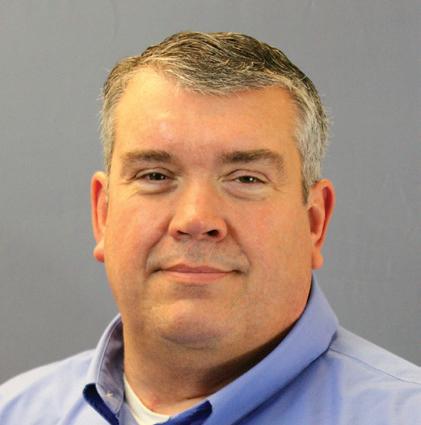
“Always be ready to give a defense to anyone who asks you for a reason for the hope that is in you.”
KEVIN CARROTHERS